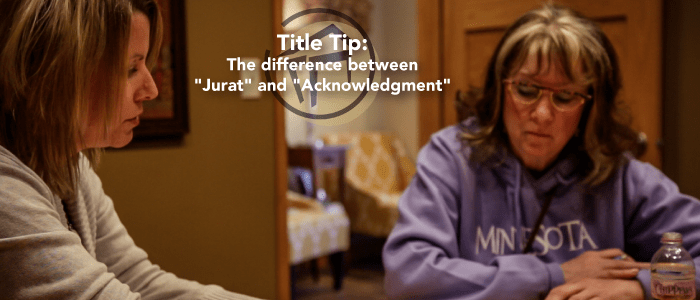Here’s a Title Tip for drafters of documents to chew on:
We’ve had a few rejections of documents (especially Torrens docs, where the Registrar pays close attention to this sort of thing) where an Affidavit (including a Certificate of Trust) is rejected because, instead of saying “Subscribed and sworn to before me”, it has an acknowledgment (“Acknowledged before me by ________”).
The reason for this is because in an affidavit, the person making it (the “affiant”) is stating, under the penalty of perjury, that the facts stated in the affidavit are true of the affiant’s personal knowledge. This requires that the affiant be sworn to the truth by an oath, much like a witness taking a witness stand in a trial.
In fact, formally, a notary is supposed to ask the signer of an affidavit to raise his or her hand and say “I do” to the notary’s question: “Do you swear that the statements contained in this instrument are true to your own personal knowledge?”, or something similar. I’m not sure how many notaries do this, but it’s supposed to be done. If it doesn’t happen it could be challenged in court if it became an issue in litigation.
An acknowledgment, on the other hand, is the notary’s determination that the person is in fact who he or she says they are, and they are signing the instrument as their free act and deed (makes the word “deed” dovetail nicely with the paper and the act!), not necessarily to the truth of the contents. We hope it’s true, but if the deed is, say, fraudulent, the crime is fraud, not perjury.
The bottom line is, make sure an affidavit isn’t drafted with an acknowledgment at the bottom rather than a jurat. Practically speaking, this is quite important because it can lead to substantial delays in recording.


